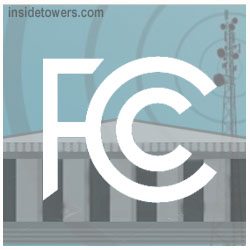The FCC is on the path to formally approving the merger of T-Mobile and Sprint. Chairman Ajit Pai had said he was inclined to okay the deal, and Wednesday he shared a draft order with his colleagues to approve it, subject to conditions. He asked them to vote in favor of the transaction as well.
Pai called the FCC’s review of the proposed $26B transaction “one of the most exhaustive merger reviews in Commission history.” The evidence, he said, shows the deal will bring 5G wireless service faster to more Americans, including rural areas. The draft order contains enforceable conditions, requiring coverage of at least 99 percent of Americans within six years.
Many critics have said the deal means less competition among wireless carriers, which will drive up consumer prices. In fact, Commissioner Jessica Rosenworcel said after receiving the draft order approving, “the largest wireless merger in history,” she believes “we need more competition, not less. I am not convinced that removing a competitor will lead to a better outcome for consumers.” She called on the agency to open up the transaction to more public comment before the Commission votes on the transaction, noting: “too much here has been done behind closed doors.”
Fellow FCC Commissioner Geoffrey Starks agreed, saying, “What’s before us now is not the same deal the parties filed months ago. To address DOJ concerns, parties made a new deal.” He’s surprised the agency, “is ignoring past precedent and practice by failing to seek public input.”
Several critics, including NTCA – The Rural Broadband Association, the Rural Wireless Association, the Communications Workers of America and public interest groups Common Cause and Free Press, reiterated their call for the Commission to invite public comment again on the transaction. In lobbying the FCC this week, the critics said the conditions agreed to by T-Mobile and Sprint with the Justice Department and the Dish spectrum buildout extension requests “represent significant changes to the original transaction and raise new and important public interest and competition issues related to execution risk; operational, technical, managerial, and financial capability of the divested party; enforcement provisions; economic incentives; and jobs.”
The FCC said its transaction team reviewed those concerns, and concludes in the order that the divestiture of Boost Mobile, along with other conditions, would address the potential for competitive harm. In light of Dish’s planned acquisition of Boost Mobile, the order also addresses extensions, commitments, and modifications to Dish’s spectrum holdings to enable its deployment of a nationwide 5G network. In the order, the agency finds that Dish’s planned 5G deployment, in connection with its acquisition of Boost, would be in the public interest.
Even if the FCC approves the merger, as it appears it will, the transaction is not final. Sixteen state Attorneys General took the agency to court in an effort to block the merger. A trial is due to begin in December. If adopted without further public comment, the FCC order will be appealed, RWA General Counsel Carri Bennet predicted.
August 15, 2019





Reader Interactions